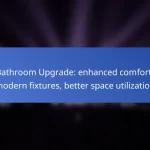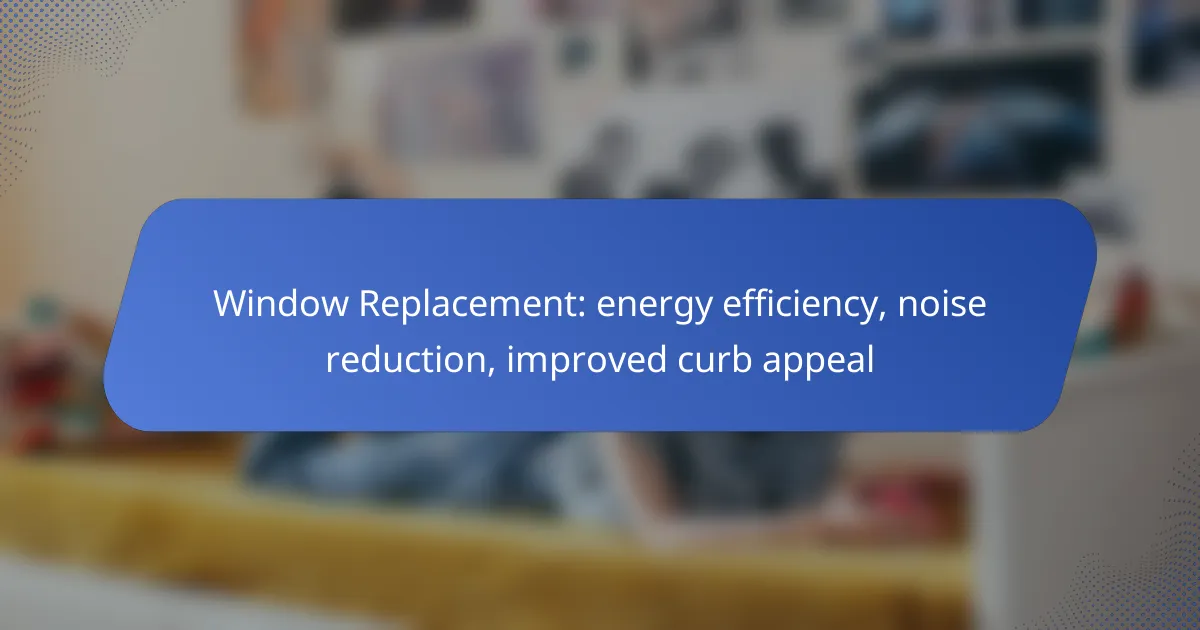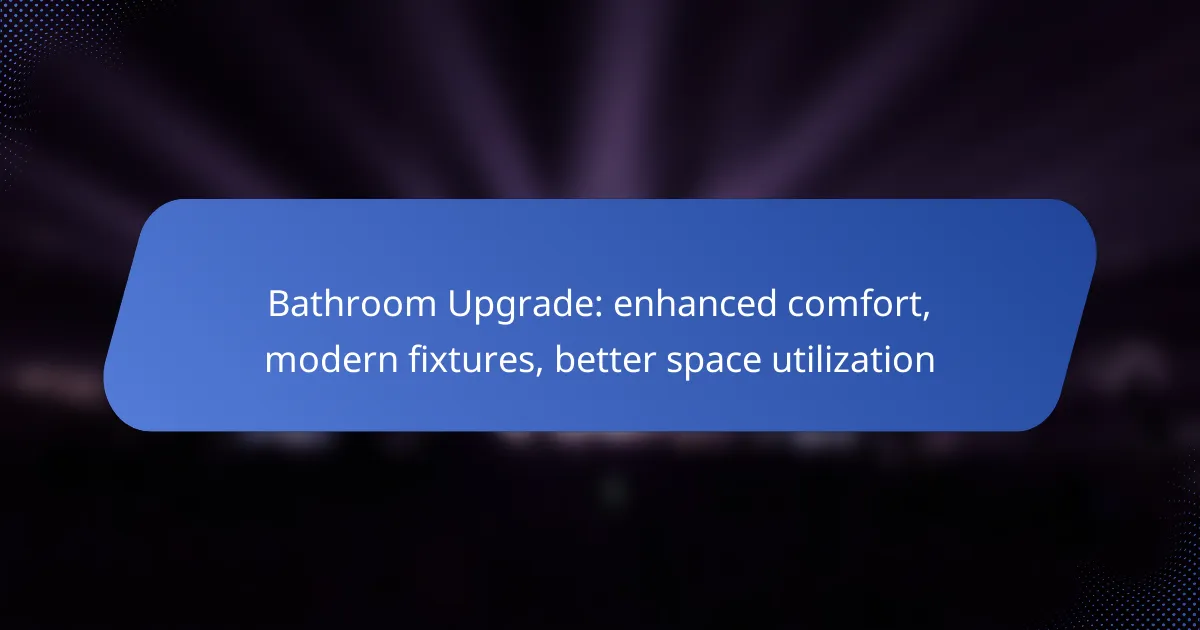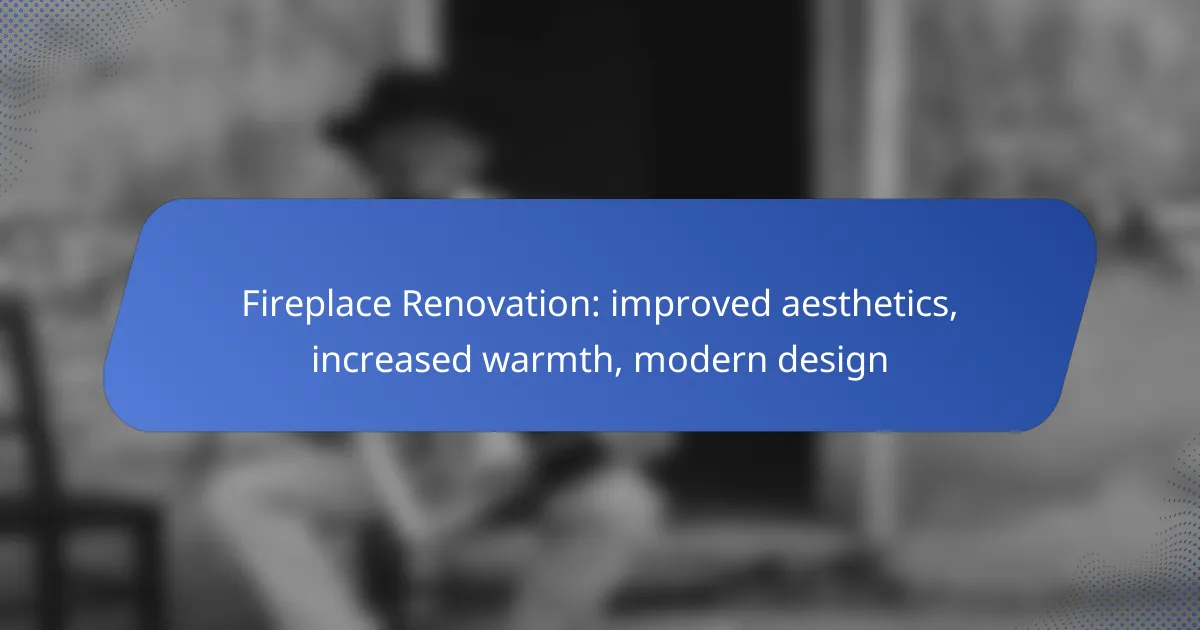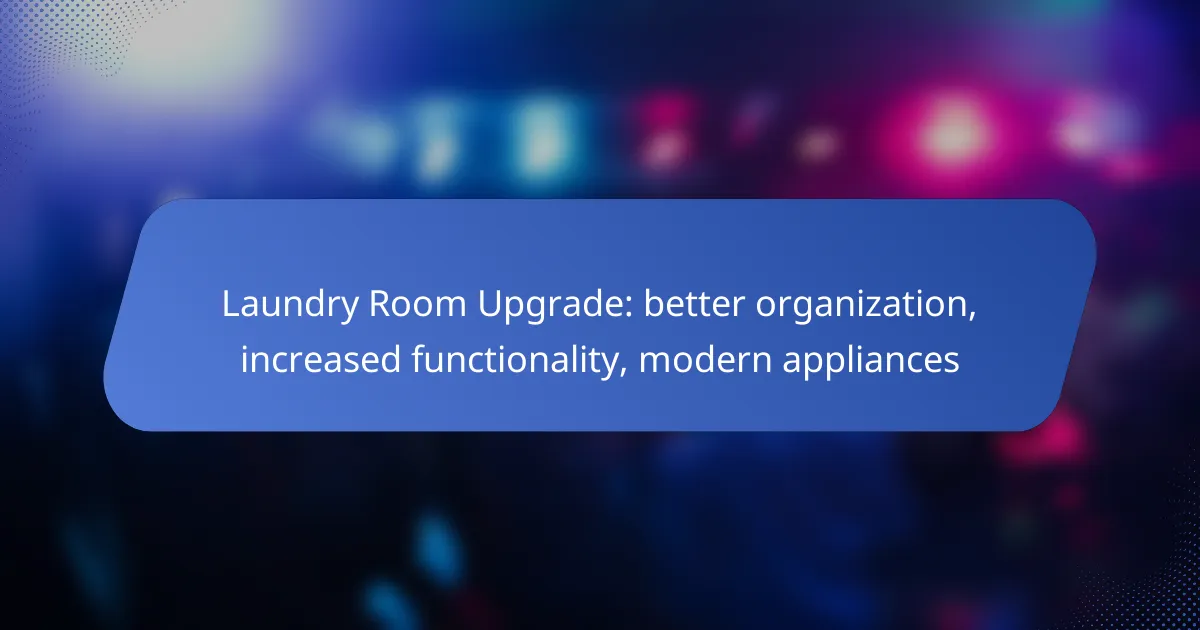Replacing your windows can greatly improve your home’s energy efficiency by minimizing heat transfer and air leaks, ultimately leading to lower energy bills. Additionally, new windows can reduce noise pollution, creating a more tranquil indoor environment. Beyond functionality, window replacement also enhances curb appeal, giving your home a fresh, modern look that attracts potential buyers and complements its architectural style.
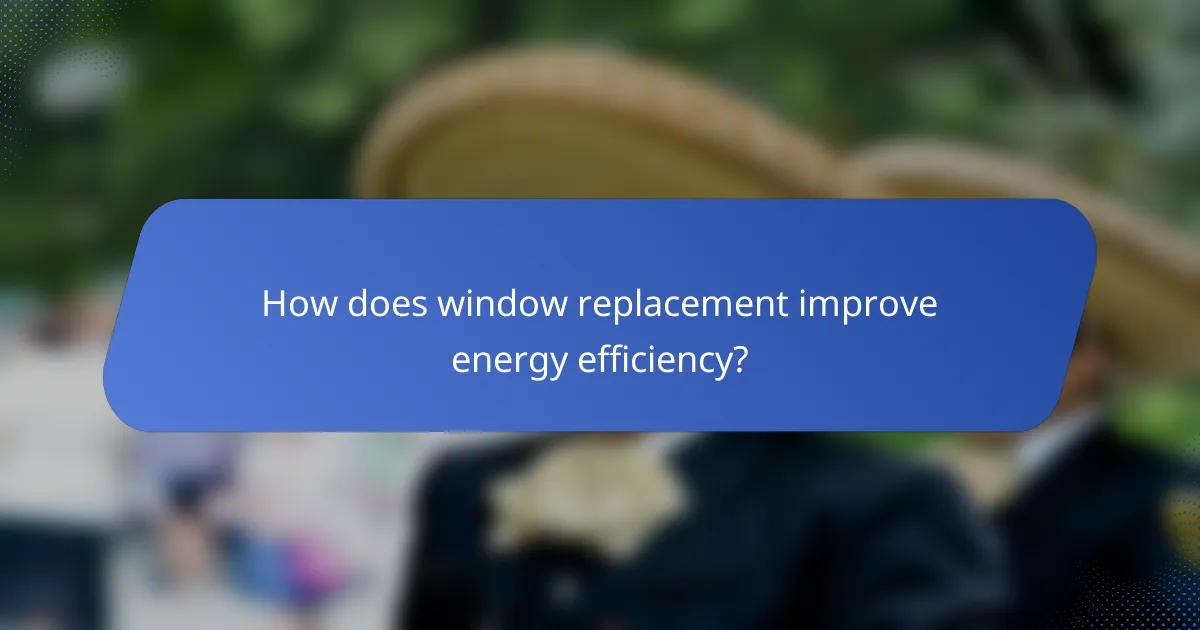
How does window replacement improve energy efficiency?
Window replacement enhances energy efficiency by reducing heat transfer and minimizing air leaks, which can lead to lower energy bills. New windows often feature advanced technologies that help maintain comfortable indoor temperatures throughout the year.
Low-E glass technology
Low-Emissivity (Low-E) glass is designed to reflect heat while allowing natural light to enter. This technology typically features a microscopic coating that minimizes UV and infrared light without compromising visible light. By using Low-E glass, homeowners can expect to reduce heat loss in winter and keep interiors cooler in summer.
When considering Low-E glass, look for products with a low U-factor, which indicates better insulation properties. Many manufacturers provide options that can block up to 90% of UV rays, protecting furnishings from fading.
Insulated frames
Insulated frames are crucial for enhancing the energy efficiency of windows. These frames are often filled with materials like foam or gas that provide better thermal resistance compared to traditional frames. This insulation helps prevent heat transfer and air infiltration, contributing to a more stable indoor climate.
When selecting insulated frames, consider the frame material. Vinyl and fiberglass frames typically offer superior insulation compared to aluminum, which can conduct heat. Ensure the frames are properly sealed to maximize their effectiveness.
Energy Star-rated windows
Energy Star-rated windows meet strict energy efficiency guidelines set by the U.S. Environmental Protection Agency. These windows are tested and certified to provide significant energy savings compared to standard models. By choosing Energy Star-rated windows, homeowners can potentially save 7-15% on energy bills annually.
To qualify for the Energy Star label, windows must have specific performance ratings, including U-factor and Solar Heat Gain Coefficient (SHGC). When shopping, look for the Energy Star logo and check the ratings to ensure you’re making an energy-efficient choice.

What are the benefits of noise reduction with new windows?
New windows can significantly reduce noise pollution, enhancing comfort in your home. By using advanced materials and designs, replacement windows can create a quieter indoor environment, making them a valuable investment for peace and tranquility.
Double-glazed windows
Double-glazed windows consist of two panes of glass separated by a space filled with air or gas, which acts as an insulator. This design not only improves energy efficiency but also effectively dampens external noise. Homeowners can expect a noticeable reduction in sound transmission, often by 20-30% compared to single-pane windows.
When considering double-glazed windows, look for options with a low-E coating, which can further enhance thermal performance. Installation costs can vary, typically ranging from $300 to $800 per window, depending on size and features.
Acoustic window options
Acoustic windows are specifically designed to minimize sound intrusion, making them ideal for homes in noisy areas. These windows often feature thicker glass and specialized seals that enhance soundproofing capabilities. They can reduce noise levels by up to 50% or more, depending on the specific product and installation.
When selecting acoustic windows, consider the Sound Transmission Class (STC) rating, which indicates how well a window blocks sound. Look for ratings of STC 30 or higher for effective noise reduction. While these windows may have a higher upfront cost, the long-term benefits of reduced noise and increased comfort can justify the investment.

How can window replacement enhance curb appeal?
Window replacement can significantly enhance curb appeal by updating the exterior aesthetics of a home, making it more attractive to potential buyers and passersby. New windows can transform the look of a property, providing a modern touch that complements various architectural styles.
Modern window designs
Modern window designs feature sleek lines and energy-efficient technologies that not only look appealing but also improve functionality. Options like casement, double-hung, and sliding windows can create a contemporary feel while maximizing natural light. When selecting designs, consider how they align with your home’s overall style and the neighborhood’s character.
Incorporating features such as large panes of glass or minimalistic frames can enhance the visual impact. Additionally, energy-efficient designs often include low-E coatings and insulated frames, which can further boost the home’s appeal by signaling sustainability and lower energy costs.
Customizable frame colors
Customizable frame colors allow homeowners to personalize their windows, enhancing the overall aesthetic of the property. Popular choices include classic whites, earthy tones, and bold colors that can make a statement. Selecting a frame color that contrasts or complements the exterior paint can create a cohesive look.
When choosing colors, consider the long-term maintenance and durability of the finish. Some materials, like vinyl and fiberglass, offer a wider range of color options that resist fading over time. It’s wise to check local regulations or homeowners’ association guidelines to ensure compliance with any color restrictions in your area.
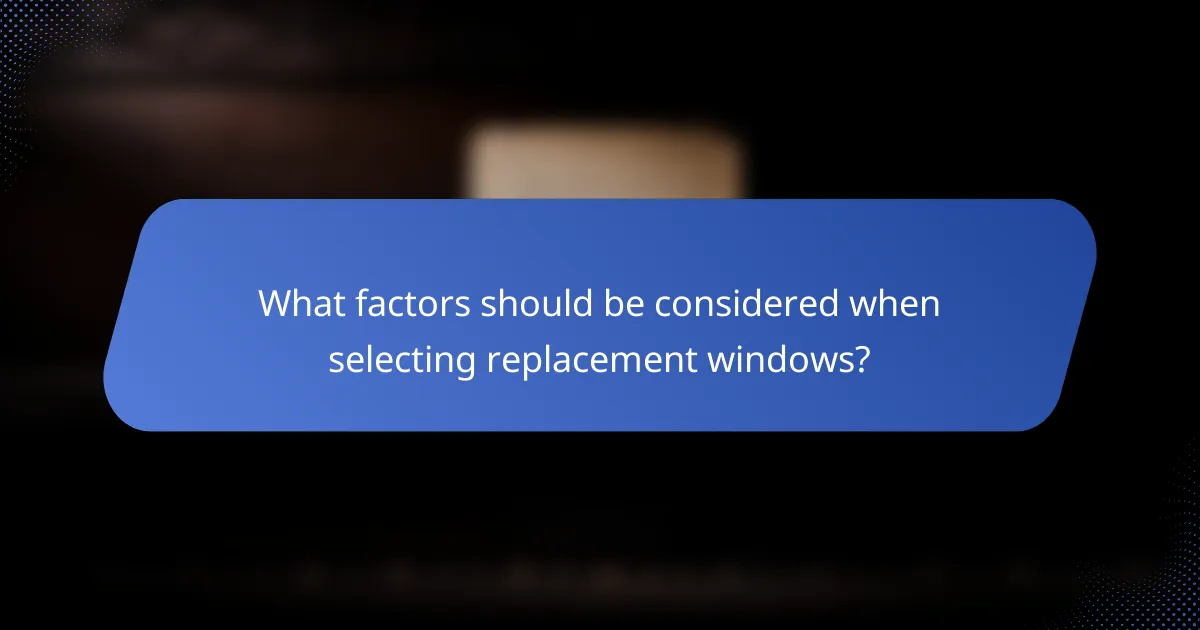
What factors should be considered when selecting replacement windows?
When selecting replacement windows, consider material types, energy ratings, and local building regulations. Each factor plays a crucial role in ensuring the windows meet your needs for energy efficiency, noise reduction, and curb appeal.
Material types
Replacement windows come in various materials, including vinyl, wood, aluminum, and fiberglass. Vinyl is popular for its low maintenance and energy efficiency, while wood offers aesthetic appeal but requires more upkeep. Aluminum is strong and lightweight, but it may not provide the same insulation as other materials.
When choosing a material, consider the climate in your area. For instance, fiberglass is highly durable in extreme temperatures, making it suitable for regions with harsh weather. Weigh the pros and cons of each material against your budget and design preferences.
Energy ratings
Energy ratings, such as the Energy Star label, indicate how well windows insulate your home. Look for windows with low U-factors, which measure heat transfer, and high Solar Heat Gain Coefficient (SHGC) ratings to reduce cooling costs. Windows with double or triple glazing can significantly enhance energy efficiency.
In many regions, energy-efficient windows can lead to savings on heating and cooling bills, often recouping their initial cost over time. Check local utility incentives for energy-efficient upgrades, as they may offer rebates or tax credits.
Local building regulations
Local building regulations dictate the standards for window installation, including safety, energy efficiency, and design compatibility. Familiarize yourself with these regulations to ensure compliance and avoid costly fines. Regulations may vary by state or municipality, so consult local building codes before making a decision.
Additionally, some areas may have specific requirements for historic homes or neighborhoods, which could influence your choice of window style and materials. Always verify with your local building authority to ensure your replacement windows meet all necessary guidelines.
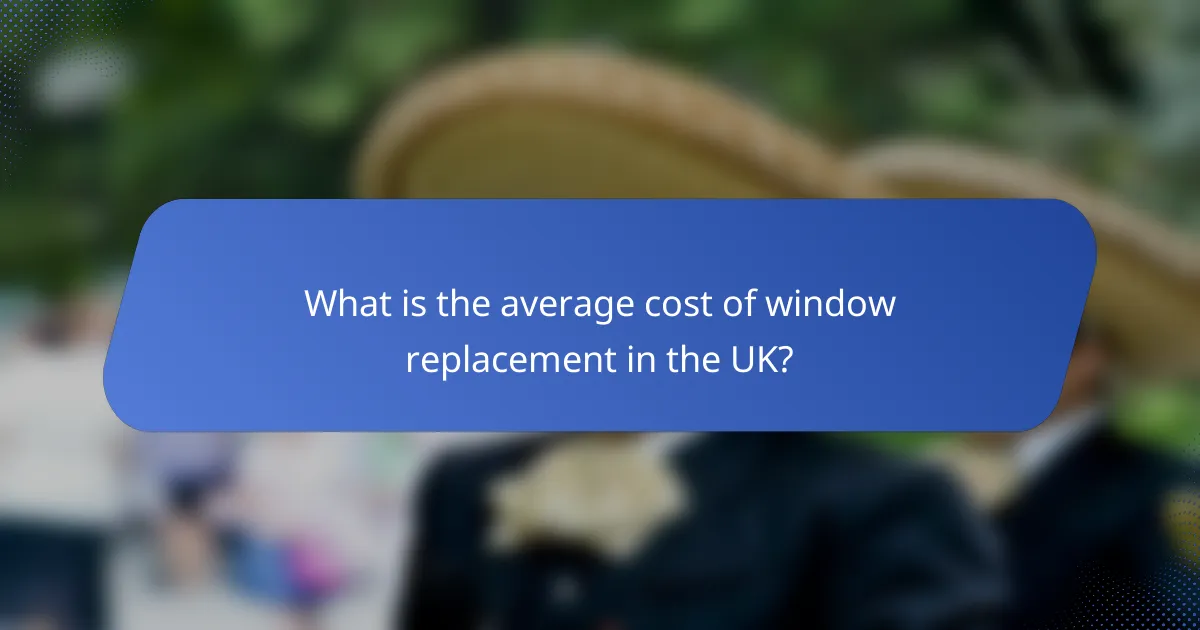
What is the average cost of window replacement in the UK?
The average cost of window replacement in the UK typically ranges from £300 to £1,000 per window, depending on factors like material, size, and energy efficiency features. Homeowners should consider both the upfront costs and long-term savings when planning a window replacement project.
Cost per window type
Different types of windows come with varying price tags. For instance, uPVC windows usually cost between £300 and £600, while wooden windows can range from £600 to £1,200. Aluminium windows often fall in the higher range, starting around £800 and going up to £1,500.
When selecting a window type, consider not just the initial cost but also the durability and maintenance requirements. For example, while wooden windows may be more expensive upfront, they can offer better insulation and aesthetic appeal, potentially increasing your home’s value.
Installation costs
Installation costs for window replacement can vary significantly based on the complexity of the job and the location of the property. On average, installation can add an additional £100 to £300 per window. If structural modifications are needed, costs can increase further.
To ensure a smooth installation process, hire a qualified professional with experience in window replacement. Always obtain multiple quotes and check references to avoid common pitfalls associated with poor installation.
Potential savings on energy bills
Replacing old windows with energy-efficient models can lead to substantial savings on energy bills, often reducing heating costs by 10-25%. Double or triple-glazed windows can significantly improve insulation, keeping homes warmer in winter and cooler in summer.
To maximize energy savings, look for windows with a good energy rating, typically labelled A to C in the UK. Investing in high-quality windows may have a higher upfront cost but can pay off through reduced energy expenses over time.

What are the common mistakes to avoid during window replacement?
Common mistakes during window replacement can lead to energy inefficiency, increased noise, and diminished curb appeal. Avoiding these pitfalls ensures a successful installation that enhances your home’s performance and aesthetics.
Choosing the wrong size
Selecting the incorrect window size can result in gaps that allow air leaks, undermining energy efficiency. It’s crucial to measure existing windows accurately or consult a professional to ensure a proper fit.
When replacing windows, consider both the frame and the rough opening. A window that is too small may not provide adequate insulation, while one that is too large can compromise structural integrity. Always double-check measurements before ordering.
Ignoring local climate
Local climate significantly impacts window performance. For instance, homes in colder regions benefit from double or triple-pane windows, which provide better insulation, while those in warmer areas may require low-emissivity (Low-E) glass to reduce heat gain.
Understanding your climate can guide material choices as well. For example, vinyl frames are often more energy-efficient in humid areas, while wood frames may be preferable in drier climates. Always consider local weather patterns when selecting windows to maximize energy efficiency and durability.

How does window replacement contribute to home value?
Window replacement significantly enhances home value by improving energy efficiency, reducing noise pollution, and boosting curb appeal. Homebuyers often prioritize these features, making properties with upgraded windows more attractive in the real estate market.
Energy Efficiency
Replacing old windows with energy-efficient models can lead to substantial savings on heating and cooling costs. Modern windows often feature double or triple glazing, low-emissivity (Low-E) coatings, and improved insulation, which can reduce energy bills by a noticeable percentage.
When considering window replacement, look for products that meet or exceed local energy efficiency standards. In the U.S., for example, windows with ENERGY STAR certification are recognized for their superior performance. This not only helps the environment but can also qualify homeowners for tax credits or rebates.
Noise Reduction
New windows can significantly decrease outside noise, creating a more peaceful indoor environment. High-quality windows with soundproofing features, such as laminated glass or thicker frames, can reduce noise levels by several decibels, making a noticeable difference in urban settings.
When selecting windows for noise reduction, consider the Sound Transmission Class (STC) rating. Windows with higher STC ratings are better at blocking sound, which is crucial for homes located near busy streets or airports.
Improved Curb Appeal
Upgrading windows can dramatically enhance a home’s exterior appearance, increasing its curb appeal. Aesthetic improvements can include modern designs, various colors, and finishes that complement the overall architecture of the home.
To maximize curb appeal, choose window styles that align with your home’s design. For instance, traditional homes may benefit from classic double-hung windows, while contemporary homes might look better with sleek casement windows. Investing in visually appealing windows can make your property stand out in the market, potentially increasing its resale value.




